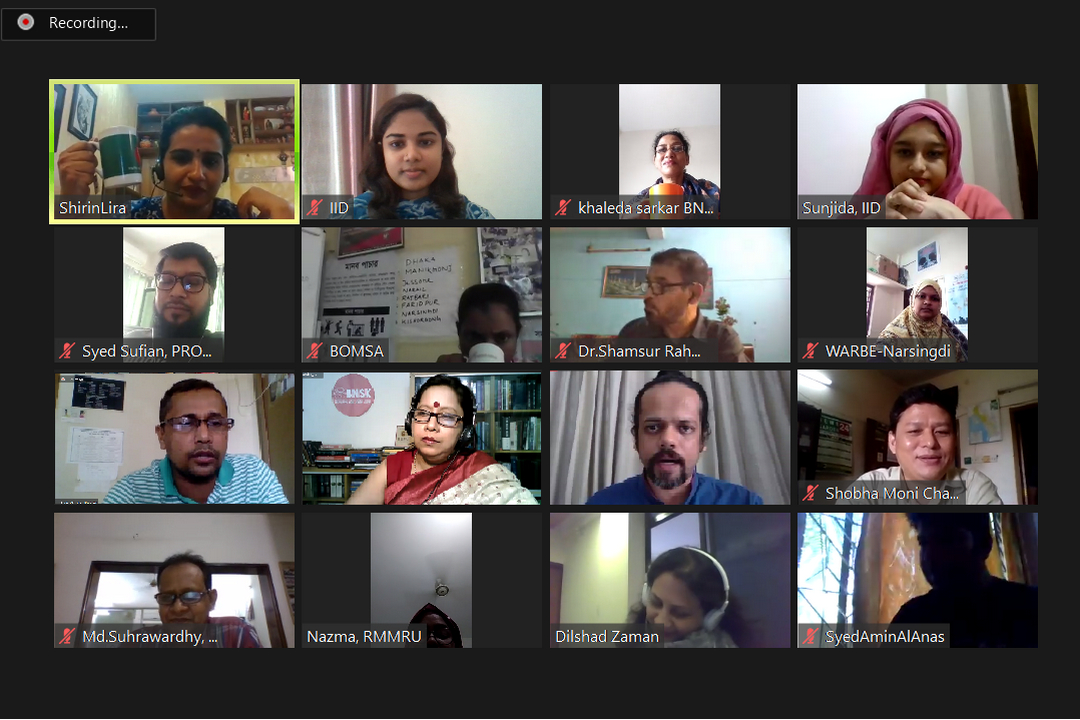To understand community-level perceptions about the impact of COVID-19 on the education of children in rural areas, IID conducted a pilot study in two villages from two different districts, one at Saghata, Gaibandha and one at Sreemangal, Moulvibazar. This study is part of IID’s e!quality initiative.
As a global epidemic, COVID-19 has emerged as a threat in terms of health; at the same time, its socio-economic impact is significant. In the context of Bangladesh, as COVID-19 has created a barrier to the overall economic activities of the country, educational activities have also been badly disrupted. Especially due to the general holidays during the Corona period, schools have been closed for about 82 weeks, and the teaching and learning of children have been severely hampered. There was an anecdotal idea among the people that the Corona epidemic had a negative impact on children’s education. However, there was a dearth of research evidence supporting this idea. As a result, it was not possible to take proper steps to solve the problem. From this realization, IID conducted the study, called the “Equality Resilience Study,” to understand community-level perspectives on the impact of the COVID-19 pandemic on children’s education at the local level.
In this case, data has been collected through interviews and focus group discussions (FGD) with students, parents, teachers, and local civil society representatives. A total of 103 students, 93 parents, 20 teachers, 9 school management committee members, 6 government officials, and 6 private officials participated in this pilot study. Before doing this study on a large scale across the whole country, IID did this pilot study to get prepared for the next step.
The study finds the education system is not resilient enough to avoid the negative impact of COVID-19 on children’s education. For example, 99% of households did not have a computer and 80% of households did not have the internet to accommodate distant learning for their children during school-closure. On the other hand, 56% of parents & 60% of teachers stressed that students have forgotten what they learned before school-closure. In terms of the impact of school-closure on children, 62% of parents and 60% of teachers revealed that children are now less attentive toward studying.
During the study, IID worked with two local e-quality consortium members, MSEDA in Sreemangal and USS in Gaibandha, who assisted in conducting interviews with the target audience. The findings of this research will be used to conduct the multi-level policy advocacy initiatives at village, district and national levels.



